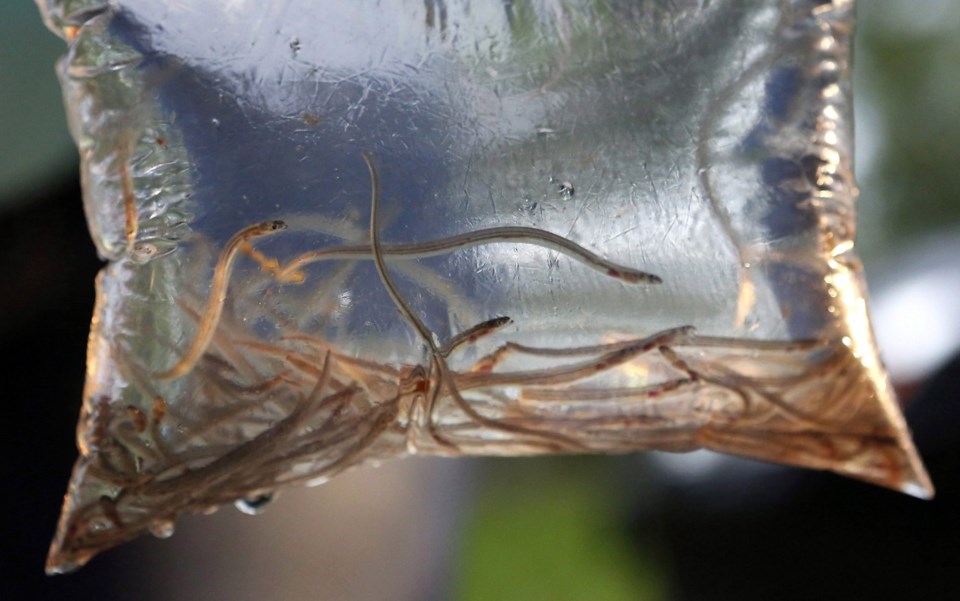HALIFAX — After a barrage of criticism over a plan to transfer baby eel quotas away from longtime licence holders, the federal Fisheries Department is delaying information sessions on the pilot project.
In December, Ottawa announced a plan to redistribute 27 per cent of the total Maritime catch of about 10,000 kilograms of baby eels — known as elvers — from nine commercial licence holders to 120 people who would operate on their own.
Each of the 120 recipients — who worked for the commercial licence holders — would gain the right to scoop 22 kilograms of the tiny, translucent eels from rivers this spring. A further 1.5 per cent of the lucrative catch would go to 30 harvesters of adult eels. In addition, Ottawa plans to shift about half of the original licence holders' quota to First Nations fishers.
However, some fishers have told The Canadian Press they would rather remain employees of the longtime licence holders than be pitted against them and face chaos over how they would store and sell their catch.
They have also said they would feel less safe working on their own as opposed to in small teams. And they are still waiting to hear which rivers they will be allowed to fish.
The federal Fisheries Department told elver fishers in an email Tuesday that an information session planned for next week has been postponed indefinitely as the government continues to evaluate comments on its proposal. The email said the department will contact the fishers "as soon as a decision is received" on the future of the fishery.
When asked if the postponement signals that the pilot project is being abandoned, a spokeswoman said Wednesday the department is still considering "input."
In the meantime, fisherman Gerry Johnson said the federal fisheries minister has created uncertainty and anxiety among the employees of commercial firms, as they await word on their futures with about two months to go until the elver season begins.
Johnson, who worked for licence holder Neptune Canada Ltd., said he is hoping Ottawa will scrap its redistribution plan.
"We don't know where we're going to sell them, we don't know where we're going to hold our catch, we don't know what rivers we're fishing in," he said. "It should go back to the way it was .... They haven't thought this through." He said fishers need time to plan for the fast-approaching opening of the season.
Alan MacHardy, who caught eels for Atlantic Elver Fishery, said it's no surprise the meeting was cancelled "because the (Fisheries Department) doesn't have any answers for us, and they don't know what they're doing."
Like Johnson, he describes himself as completely opposed to the pilot project. "They're forcing us to be self-employed and I would prefer not to be," he said.
Calling off the meeting leads to further uncertainty about his livelihood. "It's another delay, then another delay and March is coming really soon, and my gut feeling is that they're not going to be ready and they're not going to open the season," he said.
When the department proposed the change in December, it said the redistribution was a "unique opportunity to broaden the distribution of prosperity potentially including young harvesters, employees of existing commercial licence holders and harvesters who participate in co-operative commercial enterprises."
MacHardy said fishers without licences won't hesitate to occupy spots on the rivers while he and others are awaiting a plan from Ottawa. He said under the proposed plan he would no longer have the safety of working alongside fellow employees.
"It used to be two people on a river, and now on any given night there's 30 to 50 people," he said. "We used to work as a group with other employees. It used to be a bit of protection to have someone with you."
Tension over the fishery led to violence on the province’s rivers last spring, including accusations of assault and shots fired. As a result, the season was closed in March, soon after fishing had begun.
This report by The Canadian Press was first published Jan. 15, 2025.
Michael Tutton, The Canadian Press



